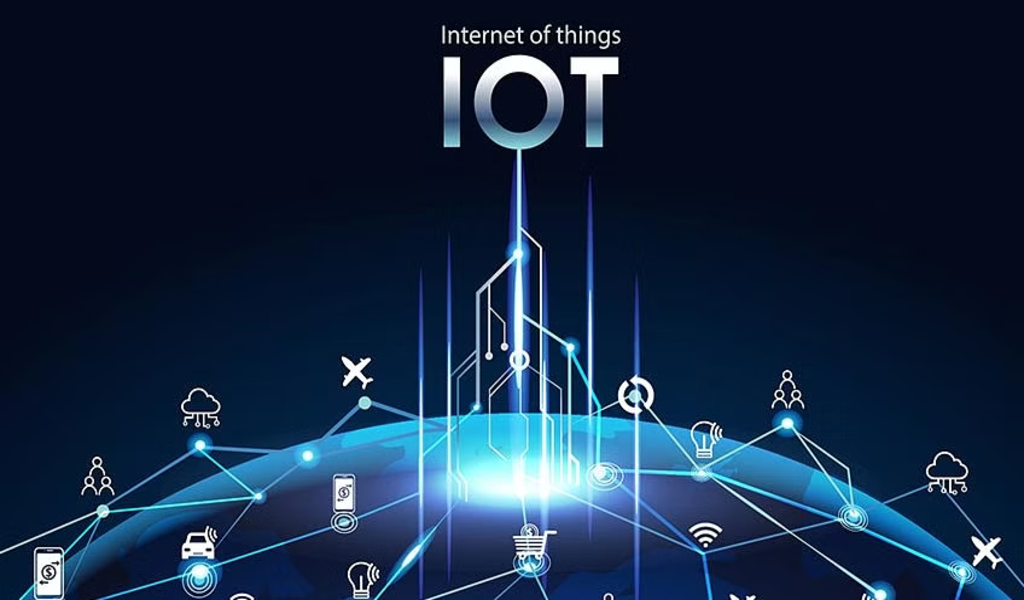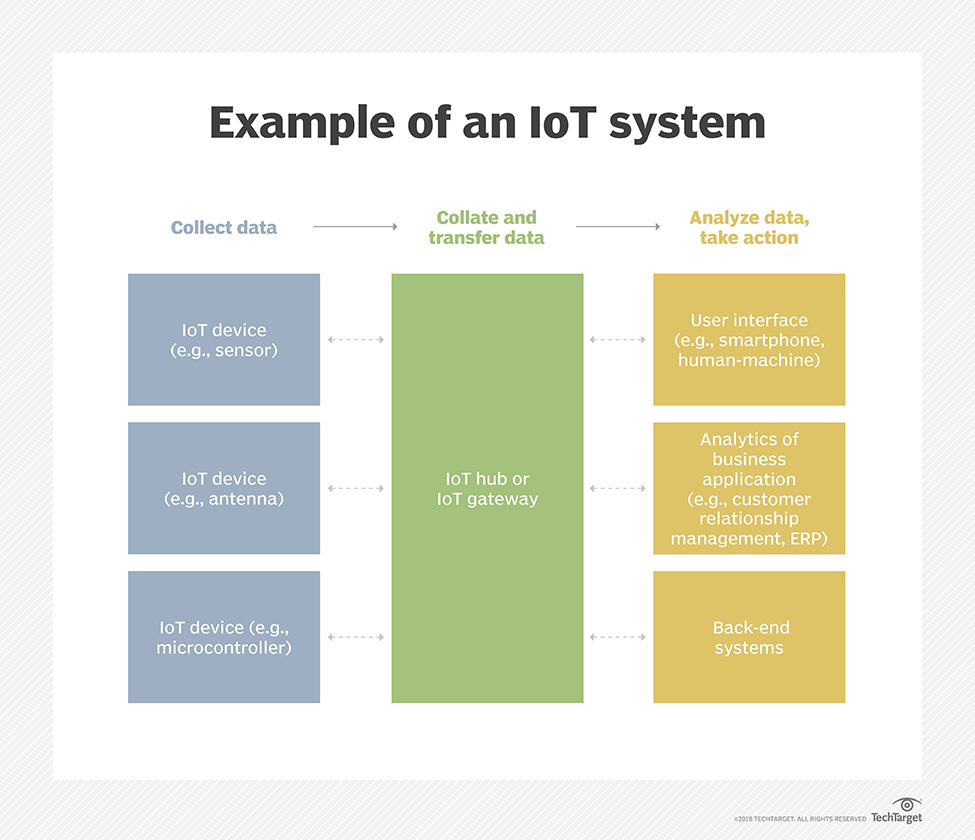Tech
The Internet Of Things (IoT): Connecting Devices For A Smarter World

(CTN NEWS) – The Internet of things (IoT) is a rapidly growing technology that has the potential to revolutionize our lives.
The IoT is a network of connected devices that can communicate with each other and share data over the internet.
This article will explore the definition of the IoT, its history, applications, benefits, and challenges. We will also discuss the impact of the IoT on various industries, its security concerns, and its future prospects.
What is the Internet of Things (IoT)?
The internet of things (IoT) is a network of physical devices, vehicles, home appliances, and other items that are embedded with sensors, software, and connectivity that enables them to collect and exchange data over the internet.
The IoT allows devices to communicate with each other and with humans in real-time, creating a seamless and interconnected world.
History of Internet Of Things (IoT)
The concept of the IoT was first proposed in 1999 by Kevin Ashton, a British technology pioneer.
The term “Internet of Things” was coined by him and referred to a system in which physical objects are connected to the internet and can communicate with each other.
The first IoT device was a Coca-Cola vending machine that was connected to the internet in 1982.
How does IoT work?
The IoT works by connecting devices with sensors, software, and connectivity to the internet. These devices collect data and share it with other devices over the internet.
The data collected by these devices can be analyzed to gain insights into user behavior, machine performance, and other useful information.
To operate efficiently, the IoT relies on wireless networks, cloud computing, and big data analytics.
Applications of Internet of Things (IoT)
IoT applications span many industries, including:
Smart Homes
The IoT can be used to create smart homes that are more energy-efficient, convenient, and secure.
Smart home devices, such as thermostats, lighting, and security systems, can be controlled remotely using smartphones or other devices.
Healthcare
The IoT can be used to monitor patients remotely, track their health data, and provide real-time feedback to healthcare providers.
Wearable devices, such as fitness trackers and smartwatches, can also be used to monitor patients’ health and fitness levels.
Agriculture
The IoT can be used to improve agricultural productivity and efficiency.
Smart sensors can be used to monitor soil moisture levels, temperature, and other environmental factors, allowing farmers to optimize crop yields and reduce water usage.
Manufacturing
The IoT can be used to improve manufacturing efficiency by providing real-time insights into machine performance, production processes, and supply chain management.
Benefits of the Internet of Things (IoT)
The IoT offers several benefits, including:
Improved Efficiency
The IoT can help businesses and individuals to be more efficient by automating tasks, reducing waste, and optimizing workflows.
Enhanced Safety and Security
The IoT can enhance safety and security by providing real-time monitoring of devices and environments. For example, smart home security systems can detect intruders and alert homeowners.
Improved User Experience
The IoT can improve the user experience by providing personalized services and real-time feedback. For example, smartwatches can provide users with notifications and reminders based on their preferences and behavior.
Challenges of IoT
The IoT also poses several challenges, including:
Security and Privacy Concerns
The IoT raises significant security and privacy concerns, as connected devices can be vulnerable to hacking and other cyber threats.
Interoperability Issues
The IoT requires different devices and platforms to work together seamlessly, which can be challenging due to differences in hardware, software, and communication protocols.
Data Management and Analysis
The IoT generates large amounts of data that must be managed and analyzed effectively to derive useful insights.
Impact of the Internet of Things (IoT)
The IoT has a significant impact on various industries, including:
Retail
The IoT can help retailers to provide a more personalized shopping experience for customers. For example, smart mirrors in clothing stores can suggest outfits and accessories based on customers’ preferences and past purchases.
Transportation
The IoT can improve transportation efficiency and safety by providing real-time monitoring of vehicles, traffic, and weather conditions.
For example, connected cars can communicate with other vehicles and traffic signals to optimize routes and reduce congestion.
Energy
The IoT can improve energy efficiency and sustainability by providing real-time monitoring of energy consumption and production. Smart energy systems can also adjust usage based on demand and availability.
Security Concerns of Internet of Things (IoT)
The IoT poses significant security risks due to the large number of connected devices and the potential for hackers to exploit vulnerabilities. To address these concerns, IoT devices must be designed with security in mind, including:
Strong Authentication and Encryption
IoT devices should require strong passwords and use encryption to protect sensitive data.
Regular Software Updates
IoT devices should be updated regularly with the latest security patches to address known vulnerabilities.
Network Segmentation
IoT devices should be isolated from other networks to prevent unauthorized access.
Future of Internet of Things (IoT)
The IoT is expected to continue growing rapidly in the coming years, with an estimated 41.6 billion connected devices by 2025. The future of IoT is likely to include:
Increased Interconnectivity
IoT devices will become even more interconnected, creating a seamless and integrated network of devices and applications.
Greater Use of AI and Machine Learning
The IoT will increasingly rely on AI and machine learning to analyze data and provide insights.
More Focus on Sustainability
The IoT will play a critical role in addressing environmental challenges, such as climate change and resource depletion, by enabling more sustainable practices in various industries.
Conclusion
The internet of things (IoT) is a rapidly growing technology that can potentially transform how we live and work. While the IoT offers many benefits but poses significant challenges, including security and privacy concerns.
As the IoT evolves, it will be important to address these challenges while leveraging its potential to create a smarter and more interconnected world.
RELATED CTN NEWS:


































